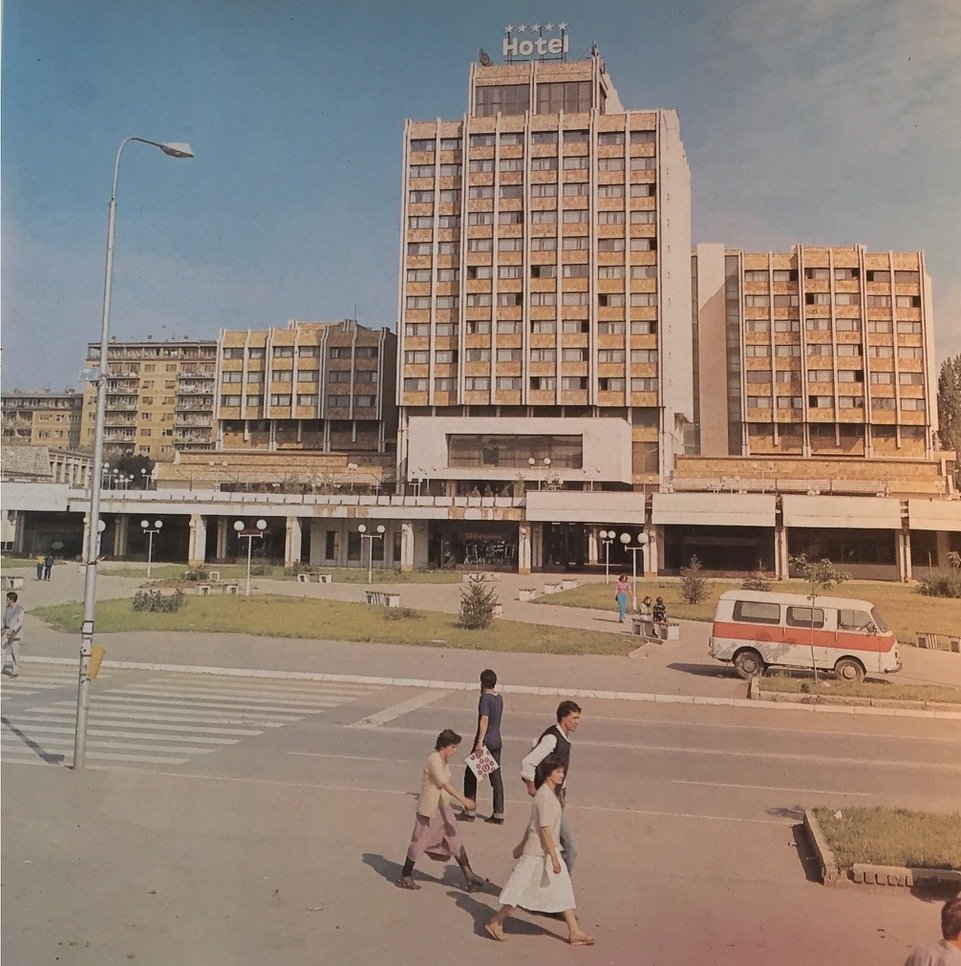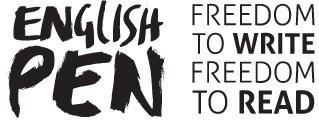For any readers who are unfamiliar with the work of English PEN – or its many international sister associations – it is a vitally important charity that has two main strands. Firstly, it promotes the freedom to write and read, and campaigns for writers at risk around the world, including writers who have been disappeared, imprisoned, persecuted or exiled because of their work. Secondly, it promotes international literature, runs a unique literary translation grants programme that enables more writing to be shared around the world, publishes the international digital literary zine, Pen Transmissions, and awards prizes to outstanding writers. To further all these functions and to engage wider audiences and raise funds, the charity runs regular events, from vigils to film screenings, panel discussions and book launches.
The literary pieces of that feature in this series were written for the 2019 English PEN Modern Literature Festival, which is co-curated by Cat Lucas, English PEN’s Writers at Risk Programme Manager, and Steven J. Fowler, a poet, artist and educator, and which, this year, evolved in a spin-off event at the Greenwich Book Festival, staged by Sam Jordison. The structural concept of the series is that a group of UK-based writers are each allocated one English PEN-supported writer who is at risk elsewhere in the world, and are commissioned to write and perform a new piece of work in solidarity with them. As Fowler describes this project: it ‘asks writers, poets, novelists, playwrights and artists to come together to continue English PEN's relationship with innovative contemporary literature by celebrating writers at risk around the world. New pieces of poetry, text, reportage are performed to evidence the struggle of fellow writers across the globe, in solidarity. The events are intended as a call to membership.’
I was honoured to be invited to be one of the UK-based writers this year – an invitation that meant a lot to me, particularly since I used to work as a human rights barrister and so have a longstanding concern with the right freedom of expression. Since none of the writer pairings are able to meet in person during this process, I like to imagine each of our new pieces being folded into a literary paper aeroplane and flown from each writer in the UK to their counterpart elsewhere, floating unnoticed by the powers that be over borders and through prison walls.
To take on writing a piece for another writer whose situation is so much harder than one’s own, and whose freedom is so much more limited, feels like a weight of responsibility as well as a privilege. Steve has described his feelings, when he co-curated the inaugural festival, on being presented with a pack of summaries of the lives of thirty English PEN-supported writers at risk: ‘When I received the files on the writers at risk… I was just about to board a long flight and so had the chance to read them in one go, over about nine hours, in the strange environs of a plane. It’s hard to describe the feeling afterwards, certainly the sense of responsibility, that I had sought out this project, enthusiastic from the off, but perhaps not truly prepared for the reality of the writers we would be writing about. It’s mawkish to speak of admiration, but coming face to face with such will, such commitment to principle… left me feeling as ashamed as I was inspired. Perhaps one can never really divorce oneself from the selfish question of whether I would continue to speak up in such circumstances, facing prison, torture, perhaps death. To risk my life and the lives of those I love.’
Each individual contributor featured in this series has experienced strong emotions in the process of stepping into the shoes of their allocated writer and attempting to craft a literary response to their situation. As Sam Jordison puts it:
‘First and foremost, there's the fury and sadness on behalf of the writers who are so unjustly imprisoned and kept from their homes, families and work. The other thing that hit me as a publisher is that when faced with similar regimes and circumstances every single writer from Galley Beggar Press [which he co-directs] would probably be in jail too. That made me feel proud of my writers - but also afraid on their behalf... And also reminded me again that the people English PEN supports are very close to us and a vital part of our world. They are like people I know and love. It is to the detriment of us all that they have been treated so badly.’
That being said, as Steve always emphasizes at the end of each festival event, the weight borne by each of the contributing writers is miniscule compared to that borne by Cat Lucas in her capacity as the Writers at Risk Programme Manager, year after year, as she works tirelessly to support these writers at risk and many more, lugging all their heartrending stories around with her in a giant backpack.
Despite all that weightiness, what comes through from these literary tributes is neither a sense of despairing gloom, nor a flood of self-involved guilt from the UK-based writers about how easy their writing and reading lives are in comparison to their counterparts elsewhere. That would be to diminish the magnitude of those writers’ spirits, literary talents, and resilience in the face of oppression and brutality. There is powerful, thoughtful, experimental, poetic and uplifting writing on display here, in fitting testament to the writers for whom each piece was created. So I urge you to delve with us into the spirit of the festival this week, and to read each of these pieces as they are published.
You will find out more about each writer pairing in the six pieces to come, but I’ll introduce them briefly here.
The first featured writer at risk is Narges Mohammadi, an Iranian journalist and human rights defender, who is currently detained in prison – the same prison as Nazanin Zaghari-Ratcliffe – has frequently been kept in solitary confinement, and suffers from a chronic and painful health condition that is not being properly treated. Her tribute is written by Sam Jordison, who, as I have mentioned, is a publisher, and is also the author of Crap Towns, and the co-author of Literary London, among many other titles. Drawing on Narges’s love of mountains, Sam has written an evocative piece describing a morning walk he loves to take on the mountain above his mother’s house in the Lake District, and reflecting on Narges’s plight as a fellow parent.
The second writer at risk featured is Dawit Isaak, an Eritrean-Swedish journalist who was arrested as part of the September 2001 crackdown on Eritrea’s independent press, and arrested along with other print journalists who have since been held incommunicado. Although alleged to be ‘traitors’, not one of them has been charged or tried. Isaak’s tribute comes from Sara Upstone, Professor of Contemporary Literature and Head of the Department of Humanities at Kingston University, who specialises in literatures of identity, the politics of the body and questions of the human. She has crafted a beautiful, moving and poetic piece exploring the process of empathy.
The third second writer at risk featured is Behrooz Boochani, an Iranian-Kurdish journalist, writer, human rights defender, poet and film-maker, who has been illegally detained by the Australian government in the Manus Island Detention Centre for over six years, after being forced to flee Iran. His book, No Friend But The Mountains, composed by necessity via WhatsApp, details the extreme hardship on Manus Island, and won the prestigious Victorian premier’s literary prize. His tribute comes from writer Paul Ewen, aka Francis Plug, author of How to Be a Public Author and Writer in Residence, who hails from New Zealand, and has drawn on Boochani’s recurring memory of the chestnut oak tree to write a piece based on this tree and the hope of refuge that it carries – the writing of required a nocturnal break-in.
The fourth writer at risk featured is Oleg Sentsov, a Ukrainian writer and filmmaker who is currently serving a 20-year prison sentence in Siberia on trumped-up terrorism charges, after a grossly unfair trial by a Russian military court, marred by allegations of torture, and who has so far spent 145 days on hunger strike. He was awarded the prestigious European Parliament’s Sakharov Prize for Freedom of Thought for his work. Steven J. Fowler pays tribute to him with two arresting and memorable performances involving the nailing and eating of pieces of fruit.
The fifth writer at risk featured is Dina Meza, a Honduran journalist and human rights defender, founder and President of PEN Honduras, founding editor of the online newspaper ‘Pasos de Animal Grande’ where she publishes information on human rights violations and corruption in Honduras, despite receiving constant death threats to herself and her children. She is the recipient of both the special Amnesty International UK prize for journalists at risk and the Oxfam Novib/PEN International Freedom of Expression prize. I paid tribute to her in two pieces: a poem and a prose reflection on the implications of such persistent risk-taking for her experience of motherhood.
The final writer at risk featured is Nedim Türfent, a Turkish news editor, reporter and poet who, after covering Turkish military operations in the southeast of the country, faced trumped-up terrorism charges following an unfair trial, during which scores of witnesses said they had been tortured into testifying against him, and is now serving an eight-year-and-nine-months prison sentence in harrowing conditions. He started composing poetry while detained. His tribute comes from James Miller, author of the novels Lost Boys, Sunshine State and UnAmerican Activities, and a Senior Lecturer in Creative Writing at Kingston University. James’s numerically poetic piece reflects on the relative experience of time both in and out of prison.
This is of course only a little literary project – and yet the stakes underlying it are high. In this era of global political tumult and climate crisis, when authoritarian and populist governments are sweeping to power, freedom of expression is increasingly under threat, along with the whole precious notion of human rights that was forged in a rare moment of cooperative international reckoning after World War II. As someone who has worked as a lawyer in countries like Myanmar, where freedom of expression, among other human rights, was severely restricted for decades under military rule, this prospect fills me with dread. Those of us who are lucky enough to live in countries like the UK and its European counterparts (at least for now) that have long enjoyed the apparent flourishing of liberal democracy and the freedoms that come with it can no longer afford to take them for granted. The political tyranny that most of us have always thought of as existing ‘elsewhere’ could emerge ‘here’ far more easily and quickly than might be imagined.
Literature – and the freedom to both read and create it – matters. All of us who believe in this would do well to take action to protect this freedom, to raise our voices and to deploy our pens… or, less romantically, our laptops, tablets and phones. One easy way to make a difference is to join English PEN, or one of its sister organisations. Membership makes a huge difference, and, as Steven J. Fowler has emphasized, every message of support to a writer at risk can give them heart. It is also important just to continue to make time in life to revel in reading, and to support good writing wherever possible. As Ursula K. Le Guin put it: ‘We read books to find out who we are’. We also read and write in order to allow our children to find out who they want to be, to make the world we all live in a better place – and even, melodramatic though it might sound, to save our species. Humans have always made art and told stories, and now, more than ever, our future depends on them.
***
About the author:
Ellen Wiles is a writer, ethnographer and curator. She is the author of The Invisible Crowd (Harper Collins, 2017), a novel, and Saffron Shadows and Salvaged Scripts: Literary Life in Myanmar Under Censorship and in Transition (Columbia University Press, 2015). She is the founder of Ark, an experimental live literature project, and has recently completed an ethnographic PhD on live literature and cultural value. She was formerly a human rights barrister and a musician.













